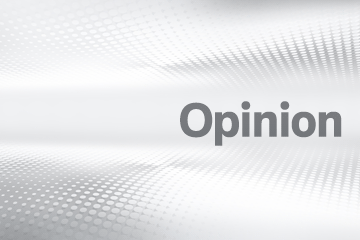
This fall, the Law Society of Upper Canada advised licensees that they must create and abide by an individual statement of principles that acknowledges their obligation to promote equality, diversity and inclusion generally and in their behaviour toward colleagues, employees, clients and the public.

This fall, the Law Society of Upper Canada advised licensees that they must create and abide by an individual statement of principles that acknowledges their obligation to promote equality, diversity and inclusion generally and in their behaviour toward colleagues, employees, clients and the public. This requirement is one of 13 recommendations contained in the “Challenges Faced by Racialized Licensees Working Group Final Report,” which was adopted by Convocation in December 2016.
I have worked on issues relating to this report since the inception of the law society’s working group in 2012. I can attest that the recommendations, including the statement, have their genesis in robust quantitative and qualitative research, as well as widespread stakeholder consultation and agreement.
Recently, a handful of licensees, who I understand did not engage in the four-year consultation process, took to traditional and social media to criticize the requirement as constituting a Charter violation and the underlying report as unfounded. I would like to correct some of the misinformation disseminated and respond to some of the points raised.
First, non-compliance with the requirement will absolutely not result in the loss of a licence. The law society will ask us on our annual report if we have adhered to the obligation. Its online FAQ addresses what will occur in the event of non-compliance, under the question: “Will I be suspended or otherwise penalized if I don’t have a statement of principles?” The response is that non-compliance will result in a written reminder of this obligation. Thus, instead of attracting a penalty, non-adherence will result in the continued opportunity to comply.
Second, licensees are not required to send the statement to the law society. After we create it (from scratch or by using the template), we can put it wherever we would like, be it our policy binders, office wall or elsewhere.
Third, the statement does not violate the Charter right to freedom of expression. But if it did, it would nonetheless comprise a reasonable and demonstrably justified infringement of this right. The statement directs action, not belief, by asking us to “acknowledge” our obligation to promote equality, diversity and inclusion. It’s an obligation that is already captured in the Rules of Professional Conduct that describe the special responsibility of lawyers to honour the obligation not to discriminate, respect human rights laws and recognize and protect the dignity of individuals in a diverse Ontario.
It also serves the pressing and substantial objective of eliminating systemic discrimination in the profession by asking licensees to acknowledge their pre-existing human rights obligations through the minimally impairing means of creating a statement comprised of words of their own choosing. Requiring lawyers to confirm their human rights obligations is not deleterious, and in any event, it would be far outweighed by the salutary effects.
Finally, we must scrutinize why Charter protection is being claimed in relation to human rights promotion where non-compliance attracts no penalty but not in relation to truly compelled statements such as the mandatory oath we took at our call to the bar in order to acquire a licence. There, our regulator mandated that we state that we would, among other things, seek to “ensure access to justice,” “improve the administration of justice,” and “champion the rule of law” and we complied. So, why is a statement regarding human rights compliance now being singled out for criticism?
The answer is that doubts remain in the profession that racialized licensees actually face systemic barriers. Doubts remain that systemic discrimination exists in society at all and, by extension, in the profession.
We have to address this. As lawyers, we are trained to examine evidence, its reliability, credibility and weight.
If a judge was examining this issue, which source of information would they find to be more persuasive: the Challenges Report, born out of four years of profession-wide consultations and robust quantitative and qualitative research, which was ultimately debated by our elected representatives and adopted with a near-unanimous vote; or the personal opinions of non-experts in the field who state these barriers do not exist simply because they have not personally experienced them? Clearly, it is the former, which found widespread systemic barriers for racialized licensees in the profession at all stages of their careers.
It bears repeating that this report was not about casting blame or labeling licensees as “racist.” It was about recognizing that the structures, systems and processes of racism that are present in society are also present in our profession, as in others. We cannot ignore this. Together, we need to shift the focus from individuals to systems and from ad hoc human rights liability to the promotion of an inclusive and diverse professional culture.
And in doing so, we must reflect deeply on our roles as lawyers. We must question why we, privileged enough to practise law — to understand it, interpret it, challenge it and contribute to its development through legal precedent and legislative change — would want to use our power and privilege to evade human rights responsibilities instead of promoting them to their fullest extent. We must reflect with our colleagues, within legal organizations, with the bench and with our regulator.
These conversations and the changes they spark will be incremental. Let’s begin by reading the Challenges Report and centering the voices of our colleagues from equity-seeking groups. Let’s then take the time to reflect on and create our statement of principles. Together, let’s create a diverse and inclusive profession.
Jennifer Quito practises human rights, pay equity, professional discipline and education law at a labour firm in Toronto. She is involved with the Law Society of Ontario’s Equity Advisory Group, the Equal Pay Coalition of Ontario and is the former policy director of the Canadian Hispanic Bar Association.